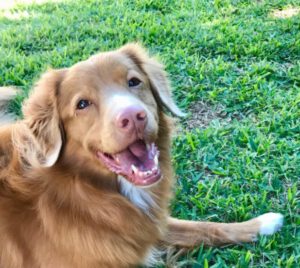How to Find a Good Dog Trainer

Finding a good dog trainer is both simple and complex. It’s simple in that it just requires research. It’s complex in that it can be difficult to distinguish if a trainer will be helpful or harmful. Here’s a short list that will help alert you to some red flags and also recognize someone who has your best interests in mind.
- Find a referral. Ask someone you trust who they would recommend. Gather a few names from different sources, like a vet, groomer, humane society, or friend. Ask for details as to why they recommend them. What is it that they liked about this trainer? Were there things they did not like? Maybe something that was pleasing to them would not be to you.
- Start Your Research. Google the trainers; find them on facebook, both under their business and personal accounts; find them on Yelp; and examine other social media accounts like Twitter or Instagram. Are there any things from any of those sources that tell you if the trainer is the one for you?
- Dig Deeper. When a friend asks me for an opinion of a trainer I do not know, I research the person and want more than just their guarantees that they can help me. I want to know HOW. And I mean, specifically. What is it that they do to train my dog? Do they use corrective collars (also known as shock collars, choke chains, or prong collars)? Are words like “balanced,” “pack leader,” or “dominant” peppered throughout their website? Do they call shock collars “vibration” collars?” I steer friends away from these people. These are red flags that show that they train through pain, fear, and intimidation. Even if I do not see any evidence of training with fear, I want to see some assurance that they do NOT train that way. In addition, are they certified dog trainers? What do the letter after their names mean? Google that stuff! And check the organizations to make sure the certifications are legit.
- Keep Digging. If you find that your research so far gives you the feeling that they will treat your dog well, take a look for any evidence of how they treat their human clients. Recently, a friend online insisted that a particular trainer was “great.” I found some red flags in my research, including a rude response from that trainer to a client. When I presented the friend with my evidence, he assured me the trainer was great with dogs, but he was not good with people. RED FLAG. If someone cannot be kind to people, they will not be kind to my dog. Dismissed.
- Test Them Out. After your primary research, connect with the dog trainer. How do they respond to you via email, text, or phone? Do you like the way they engage with you? I look for a trainer who is polite and willing to give me a few minutes of their time.
- Hire Them. So, you think you’ve found your dog trainer. You hire them for a consult. This is the time to see how they interact with you and your dog. If there is anything that they do during the consult that makes you uncomfortable, stop them. There is no need to go any further with someone you do not trust. Trust yourself and your instincts. You do not have to like everyone. One of my clients recently told me that she had hired a dog trainer who appeared positive, but halfway through the consult, was pushing her dog into a corner to force him to sit. This made my client uncomfortable and she did not hire that trainer further. DO NOT CONTINUE WITH SOMEONE WHO MAKES YOU UNCOMFORTABLE OR NERVOUS.
So, yes, it’s some amount of work to find a good trainer. But you would do the research for any other thing you care for, like your teeth, or your hair, or your plumbing, or your roof. Finding a good trainer will benefit both you and your dog, not only by helping you achieve the behavior you are looking for, but by preventing the behavioral fallout that is likely to occur when choosing someone who “trains” with fear and pain.


